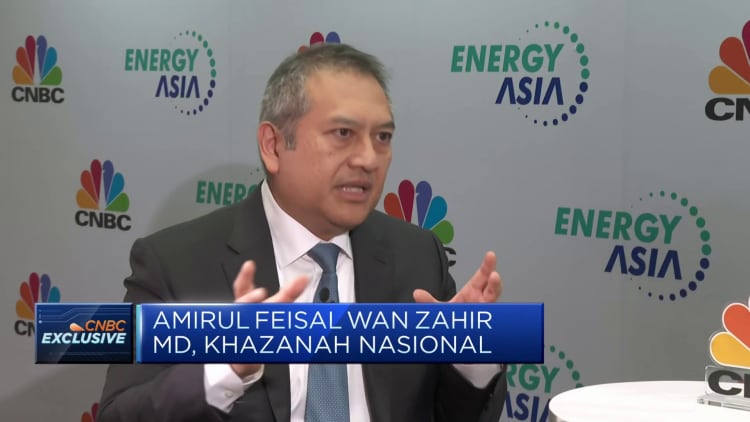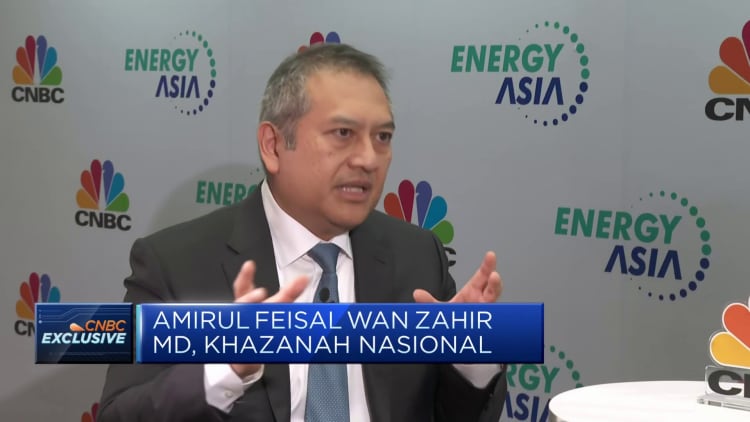
Malaysia’s sovereign wealth fund Khazanah Nasional is rebalancing its investment portfolio for greater resilience against market volatility, according to its managing director.
Khazanah’s net asset value declined 5% to 81 billion ringgit ($17.4 billion) in 2022 from a year ago, hit by global market downtrends, the fund said in March. The Kuala Lumpur-based fund invests more than half of its portfolio in public markets.
“What we are focused on doing here is to look at how we can be a bit more resilient in the market,” Khazanah’s managing director Amirul Feisal Wan Zahir told CNBC Monday on the sidelines of the Energy Asia conference in Kuala Lumpur.
“Looking at the volatility in the market, we are still in the process of rebalancing our portfolio,” he added.
Malaysia’s sovereign wealth fund Khazanah Nasional is fortifying its investment portfolio for greater resilience in volatile markets, according to its managing director Amirul Feisal Wan Zahir.
Bloomberg | Bloomberg | Getty Images
Khazanah posted a 1.6 billion ringgit ($343 million) net profit in 2022 — more than doubling its net profit from the year before and a fourth-straight annual net profit after an unprecedented plunge in 2018.
In comparison, the MSCI World index saw a more than 18% slump in 2022 and the MSCI Emerging Markets index dived 20% in the same period.
As of end 2022, Khazanah said 55.9% of its portfolio was invested in public markets in Malaysia, with 13.4% invested in public markets overseas. Nearly a quarter of its portfolio was invested in private markets, more than half outside Malaysia, with 8% invested in real assets.
“There is actually a lot of potential in deploying assets,” said Wan Zahir, pointing to investment opportunities in volatile market environment.
“In this current moment, when you look at industrial consolidation … or we know there is a rising rate environment, and corporates will get squeezed — especially when you look at consumer or highly leveraged companies,” he said.
Inflation rates have stayed persistently high globally despite multiple interest rate hikes as central banks seek to rein in years of super-easy monetary policy following the 2008-2009 financial crisis. Rate hikes and rising yields have combined to hurt many companies.
“But it does tell CEOs and corporates — how can I actually reduce my costs?” Wan Zahir said.
“So when you look at areas such as business services, you could get opportunities in the private equity space there as well.”


